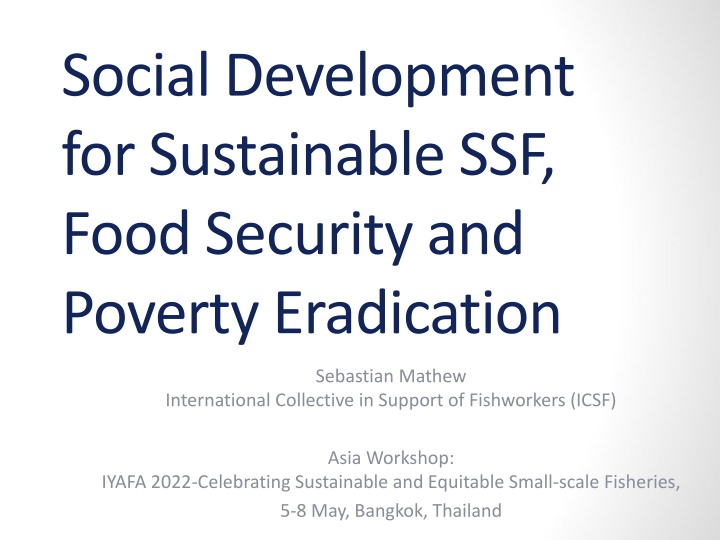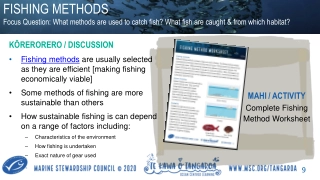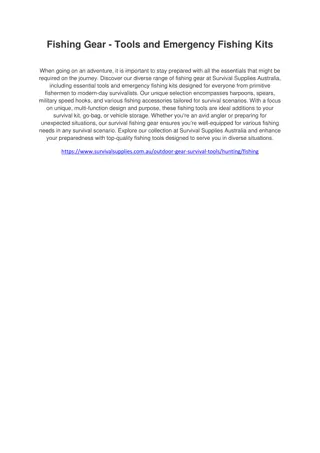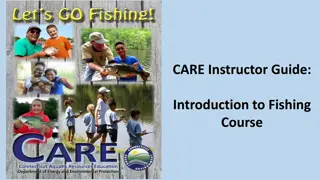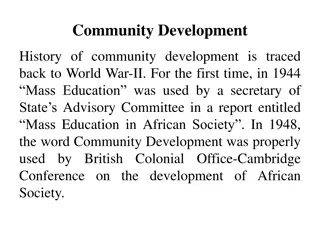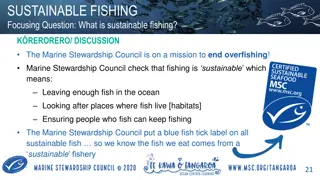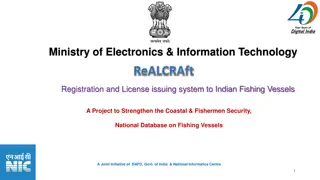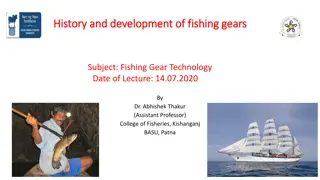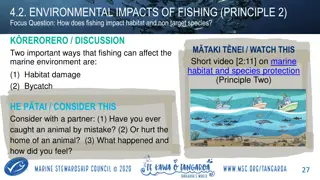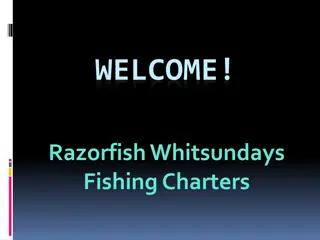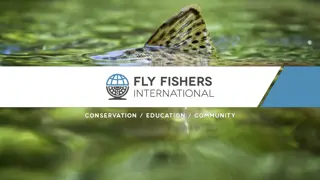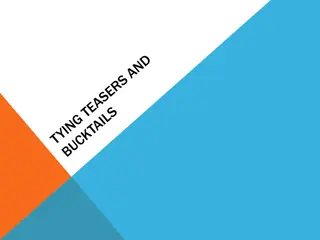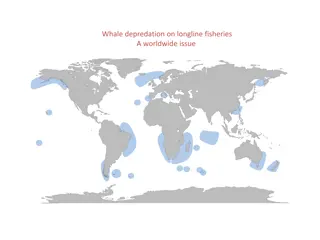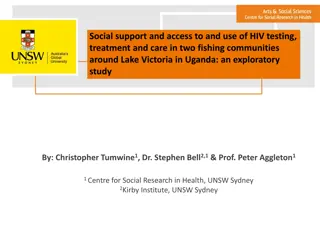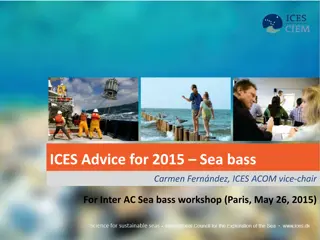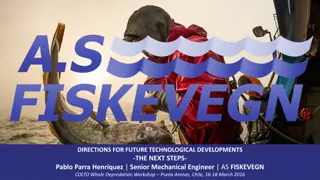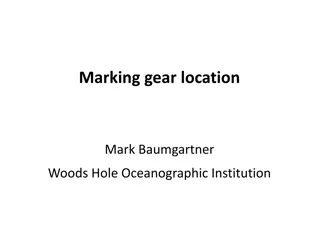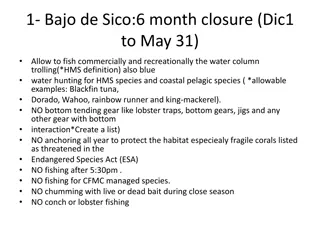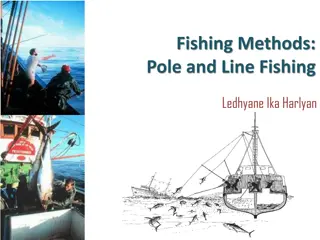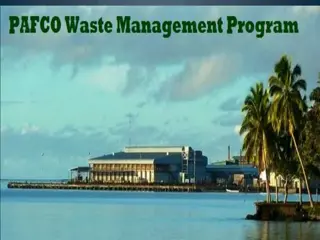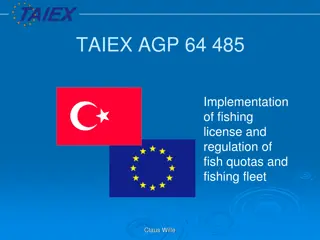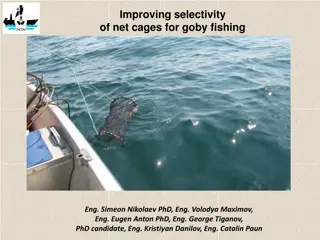Social Development for Sustainable SSF: Empowering Fishing Communities
Signifying the overall well-being of people, this content explores how social development and the SSF guidelines play a crucial role in advancing human rights, equality, and inclusion within fishing communities. By reconciling an ecosystem-based approach with livelihood complexities, it supports small-scale fishers in moving towards sustainable fisheries, food security, and poverty eradication.
Download Presentation

Please find below an Image/Link to download the presentation.
The content on the website is provided AS IS for your information and personal use only. It may not be sold, licensed, or shared on other websites without obtaining consent from the author.If you encounter any issues during the download, it is possible that the publisher has removed the file from their server.
You are allowed to download the files provided on this website for personal or commercial use, subject to the condition that they are used lawfully. All files are the property of their respective owners.
The content on the website is provided AS IS for your information and personal use only. It may not be sold, licensed, or shared on other websites without obtaining consent from the author.
E N D
Presentation Transcript
Social Development for Sustainable SSF, Food Security and Poverty Eradication Sebastian Mathew International Collective in Support of Fishworkers (ICSF) Asia Workshop: IYAFA 2022-Celebrating Sustainable and Equitable Small-scale Fisheries, 5-8 May, Bangkok, Thailand
Social development and the SSF Guidelines Signifies the overall well-being of the people, the community, and the society Brings attention to the poor and disadvantaged, including the vulnerable and marginalized Advances human rights, social and economic equality and inclusion, and helps realize the empowerment of fishing communities Can be community-led or state-led, or can be a combination of these, and coordinated by the State
Social Development and the SSF Guidelines Reconciles an ecosystem-based approach with the complexity of livelihoods in the SSF subsector and helps to balance ecological well- being with social well-being Creates conditions for small-scale fishers to move towards sustainable fisheries, food security and poverty eradication
Principles of social development in the SSF Guidelines Affordability Extending preferential treatment (of women, Indigenous Peoples, the vulnerable and marginalized groups, children, older persons, subsistence, occasional, part-time, full-time and formal or informal fishers and fishworkers) Equitable benefits Fair treatment of all
Decent Work and the SSF Guidelines Protecting and promoting decent work and fair returns to labour in fisheries (promoting employment, protecting the rights at work, providing social security to women, Indigenous Peoples, vulnerable and marginalized groups, informal workers, and migrants) Decent work in both formal and informal fisheries sectors along the value chain to ensure sustainable small-scale fisheries
Social Security and Social Protection, ILO Social security is a human right (Article 22, UDHR) and includes nine branches: child and family benefits, maternity protection, unemployment support, employment injury benefits, sickness benefits, health protection (medical care),old age benefits and invalidity/disability benefits (ILO World Social Protection Report 2020-22) Social protection covers a broad range of services in addition to social security and includes: protection provided between family members, between members of a local community, and measures addressed to the poorest, most vulnerable or marginalized members of society (ILO World Social Protection Report 2020-22)
Occupational Health and Forced Labour in the SSF Guidelines Adopting legislation to deal with occupational safety and health (OSH) issues and unfair working conditions in marine and inland fisheries Integrating OSH into fisheries management Eradicating forced labour in fisheries, including small-scale fisheries (forced labour refers to a situation where work or service is exacted from people under the menace of any penalty, and for which they have not offered themselves voluntarily (ILO Forced Labour Convention, 1930- -the most widely ratified ILO Convention)
Protection of migrant workers in the SSF Guidelines Need to facilitate fair and adequate integration of migrants into small-scale fisheries and recognize coordinated migration of fishers and fishworkers into fisheries in consultation with fishworker organizations
Investing in Social Development and the SSF Guidelines Investing, creating and providing access to: Food, clothing, housing, sanitation, health services, drinking water and energy Education, literacy and digital inclusion Saving, credit and insurance Ensuring access to justice (environmental, social, and economic) Improving sea safety and disaster management Protecting access to customary fishing grounds Providing decent work opportunities
Achieving social development and the SSF Guidelines Adhering to national, regional and international human rights standards Encouraging conservation and sustainable use of fishery resources Adopting inclusive, non-discriminatory and sound economic policies Promoting alternative income generating opportunities Providing an environment free from crime, including from organized crime, violence, piracy, theft, sexual abuse, corruption and abuse of authority Respecting coordinated migration of fishers across national boundaries
Demonstrating Social Well-being Creating the enabling conditions of social development goes beyond the mandate of fisheries authorities or the capacities of fishing community collectives Commitment to effective governance (robust institutions, sound mechanisms and meaningful processes) at various levels
Social Development and SDGs Goal 1: End poverty in all its forms everywhere (which includes target 1.3 to implement nationally appropriate social protection systems and measures for all) Goal 2: End hunger, achieve food security and impord nuttion and promote sustainable agriculture Goal 3: Ensure healthy lives and promote well-being for all at all ages Goal 4: Ensure inclusive and equitable quality education and promote lifelong learning opportunities for all Goal 5: Achieve gender equality and empower all women and girls Goal 8: Promote sustained, inclusive and sustainable economic growth, full and productive employment and decent work for all
Acknowledgements International Ocean Institute Southern Africa, Small-scale Fisheries Governance Training Course for Asia, November 2021
